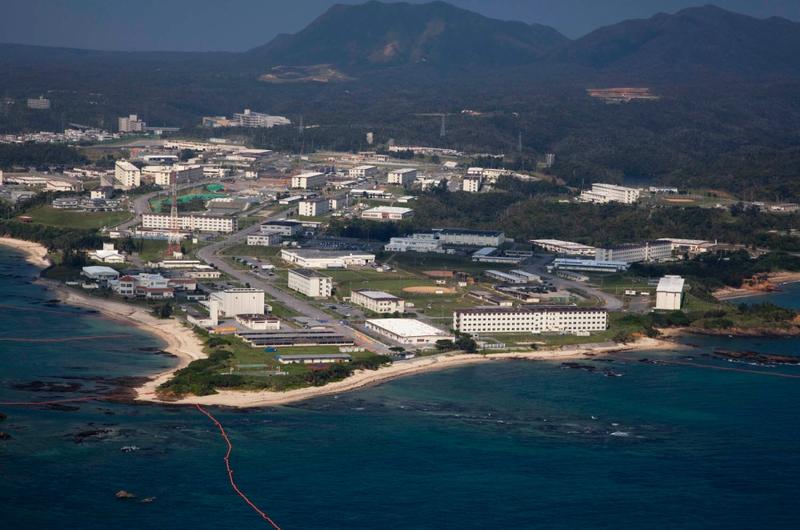Kennedy: Okinawa move still ‘best of any other plan considered’

An aerial view of Camp Schwab in northern Okinawa, Japan. A plan to shutter Marine Corps Air Station Futenma and move its operations to Schwab on the island's less populated Henoko district has drawn criticism from demonstrators and the island's governor, who want the operations moved entirely off Okinawa.
By Erik Slavin | Stars and Stripes December 17, 2015
TOKYO — U.S. Ambassador to Japan Caroline Kennedy reiterated support for ongoing efforts to relocate a Marine base on Okinawa and advocated for the Trans-Pacific Partnership, during a press conference Thursday.
The plan to shutter Marine Corps Air Station Futenma and move its operations to Camp Schwab on the island’s less populated Henoko district has drawn criticism from demonstrators and Okinawa Gov. Takeshi Onaga, who want the operations moved entirely off Okinawa.
Both the Japanese and U.S. governments have maintained that the plan must move forward, as one part of a broader realignment of U.S. forces in the Asia-Pacific region.
The plan to build a new runway over Oura Bay to accommodate the new air traffic was one of several studied, and, “I think this is the best of any other plan considered,” Kennedy said.
“We are working hard to reduce the impact of the bases, and we understand how important this is,” she added.
About half of the roughly 50,000 U.S. servicemembers in Japan are based on Okinawa, an island prefecture with a population of about 1.4 million.
The realignment plan would transfer about 20 percent of land used by U.S. bases on the island back to Japan, Kennedy said. Thousands of Marines are also scheduled to eventually move from Okinawa to Guam as part of the realignment.
Kennedy later praised the relationship between the U.S. military and the Japan Self-Defense Forces, which she said contributed positively to humanitarian operations in Nepal and the Philippines during the past year.
Kennedy also advocated for the Trans-Pacific Partnership, a 12-nation trade pact whose participants represent about 40 percent of the global economy. The pact will lower trade barriers, improve worker safety and help build an economic architecture for the region based on democratic values, she said.
Opponents of the TPP in the U.S. and Japan – the pact’s two largest partners – contend it will cost jobs and raise pharmaceutical prices in developing countries, among other objections.
When asked whether President Barack Obama would be able to overcome objections within his own party and get Congress to pass the TPP, Kennedy remained steadfast.
“[Obama] has a very strong record of achievement on things that he cares deeply about,” Kennedy said. “I have no doubt that when this all comes together, that TPP will pass.”



